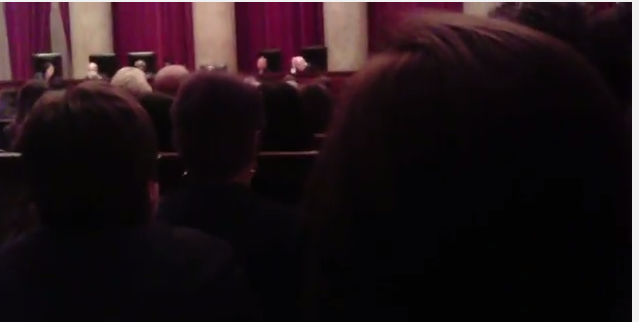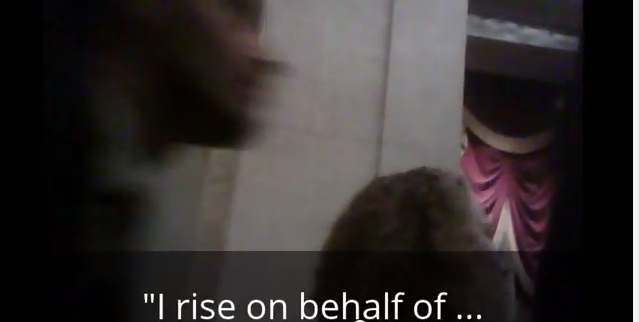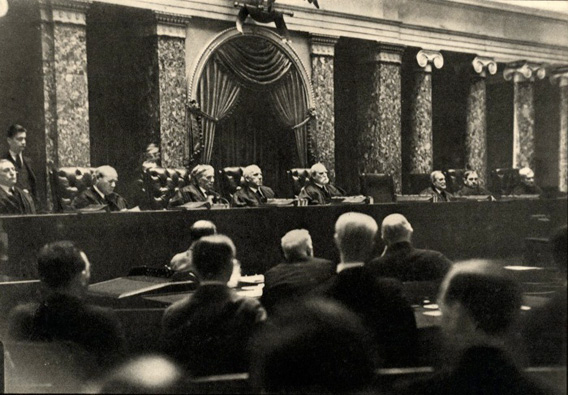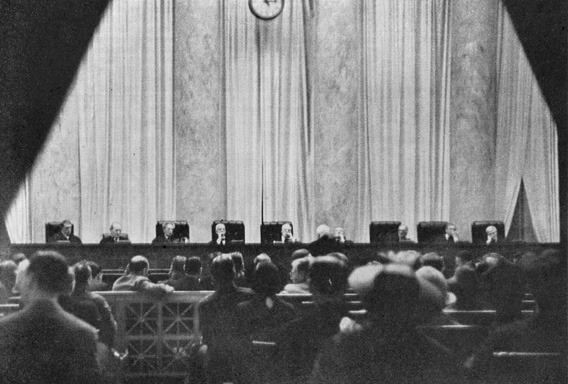In the past, I have questioned the significance of briefs authored by members of Congress, who drawing on their experience in the legislative process, try to tell courts what the law really means. I think these briefs are not particularly helpful. These types of briefs are not submitted by scholars who closely inspected the record, or experts who have views on the law, but instead by the architects of a law. While this group is certainly qualified to discuss the record, they submit the brief because of the gravitas of their role in the legislature. In other words, the not-too-subtle hint to the court is that our vision of the history is the best because we were there.
That should be true in the abstract, except when you consider the circumstances in which the brief is filed. It is not filed by all 535 members of Congress, nor is it filed by even the members of Congress who voted for the law. It is usually field by a handful of vocal legislators who likely were instrumental in the law being passed. It is entirely conceivable that the views they hold, and write in the brief, represents those of everyone who voted for the law, or maybe even everyone in Congress. But I am doubtful. Congress is a they, not an it.
Putting aside Justice Scalia’s noteworthy rejection of legislative history, it is fairly accepted in legislation circles that post-enactment legislative history is the worst. Why? Because members of Congress after a law is passed are no longer constrained by the legislative bargain. They can say whatever they want, whether or not that idea was expressed during the debate, or whether that idea would have perhaps spiked the legislative bargain. I talk about some of those concepts in this article.
So even if members of Congress are making post-enactment statements about the legislative record, and are citing accurately to the record (I have no reason to think they are not), the context and nature of the arguments, and the principles they give to Congress as aw hole, are shaded by the very post-enactment sentiments that renders post-enactment history inherently unreliable. That’s not to say the arguments are wrong. Rather, I think members of congress, seeking to persuade a court to rule a certain way, can rely on individualistic understandings of what happened, rather than the broader collective will.
I expressed these concerns when Senators McCain, Graham, and Ayotte to intervene in Hedges v. Obama (see here, here, and here), and when Senator McConnell intervened in the recess appointment case (here). I noted similar objections when 6 Democratic members of Congress, who were involved in steering the Affordable Care Act through the legislative gauntlet in 2009 and 2010, filed a brief in Halbig v. Sebelius.
Si Lazarus of the Constitutional Accountability Center (who co-authored the Halbig brief I mentioned) penned a reply to my post. I really don’t have any issue with the merits of Si’s post. Our disagreement focuses on the relevance of the brief itself, not the actual content of the brief, which I can assume are accurate recitals of the record, though I haven’t studied the legislative record for the Halbig issue closely enough. My main objection is to the broader issue of members of Congress filing these legislative briefs, and assessing what weight they carry. (Not a big point of disagreement, but if HHS is spending money without a grant of power from congress, this would be ultra vires, and thus unconstitutional)
Si takes issue with the fact that I called the signatories of his brief “opportunistic” (Senators Baucus, Harkin, and Reid, and Representatives Levin (MI), Miller (CA), Pelosi (CA), and Waxman (CA))
In a post on his blog yesterday, Josh Blackman impugns (as “opportunistic”) the motivation and appropriateness of an amici curiae brief recently filed by CAC on behalf of key congressional architects of the Affordable Care Act. Blackman makes several wild swings, so wide of the mark as to require a brief corrective response.
I was not calling the counsel at CAC opportunistic. I respect their work, though I may not always agree with it. My comments were directed at the members of Congress who helped steer the ACA though.
Let me put this bluntly, as someone who has studied the legislative process leading up to the passage of the ACA closer than just about anyone else. The entire nature of passing this law was opportunistic. The bill was drafted behind closed doors, and only released in its final version shortly before the Christmas Eve vote, which passed on a straight party line vote. After the Scott Brown election, the Democrats relied on a bizarre version of the budget reconciliation process to make changes to the ACA, without subjecting it to the Senate filibuster. Drafting errors such as the one in Halbig were likely supposed to be fixed during the reconciliation process, but this never happened. There were lots of things that didn’t get fixed. As one member of Congress noted, “We had to take the Senate version of the health care bill. This is not anything we spent time talking about here in the House.”
In particular, former-Speaker Pelosi is ripe for these charges of opportunism. Her get-it-done-at-any-cost philosophy should estop her from being any type of spokesperson for the tenor of the Congress, and what they were trying to achieve. Her goal was to pass something, anything, and worry about the consequences later. Her statements support this.
When someone asked if the law was constitutional she asked, “Are you kidding?” On this point, Democrats owe a special debt to Si Lazarus, Caroline Frederickson, and a few others, as they drafted the only Senate constitutional findings added to the ACA (note they focused on the commerce power, not the taxing power). The House made absolutely no findings on the constitutionality of the law. No hearings were held until a year after the law was enacted. Yet, in May 2012, when asked for her forecast for the vote of the Supreme Court, Pelosi said “Nobody was frivolous with the Constitution and the health of the American people in writing the bill.” Similarly, Secretary Sebelius said “Congress carefully weighed its authority in writing the law.”
As for whether Pelosi actually knew about the provision in Halbig, I am very doubtful. Recall she said, “We have to pass the bill so that you can find out what is in it, away from the fog of controversy.” Even though she later claimed that she read the entire 2,700 page bill.
I could go on and on about the hubris with which this law was enacted. Remember “deem and pass” (what the Washington Post dubbed “procedural sleight of hand”)?
If there was some equitable cause of action that merged estoppel and chuztaph, this would enjoin Pelosi from opining on any aspect of the legislative process, and constitutionality of the ACA. As I wrote in my previous point, Pelosi is estopped from commenting on the constitutionality of the ACA.



